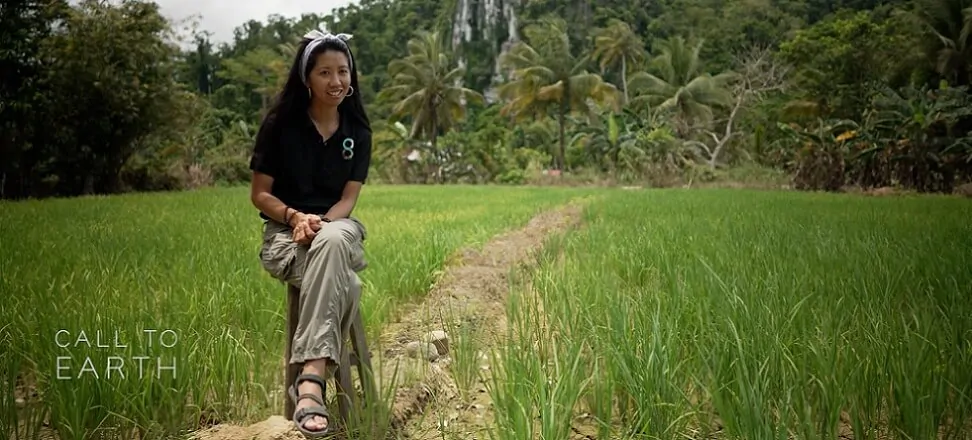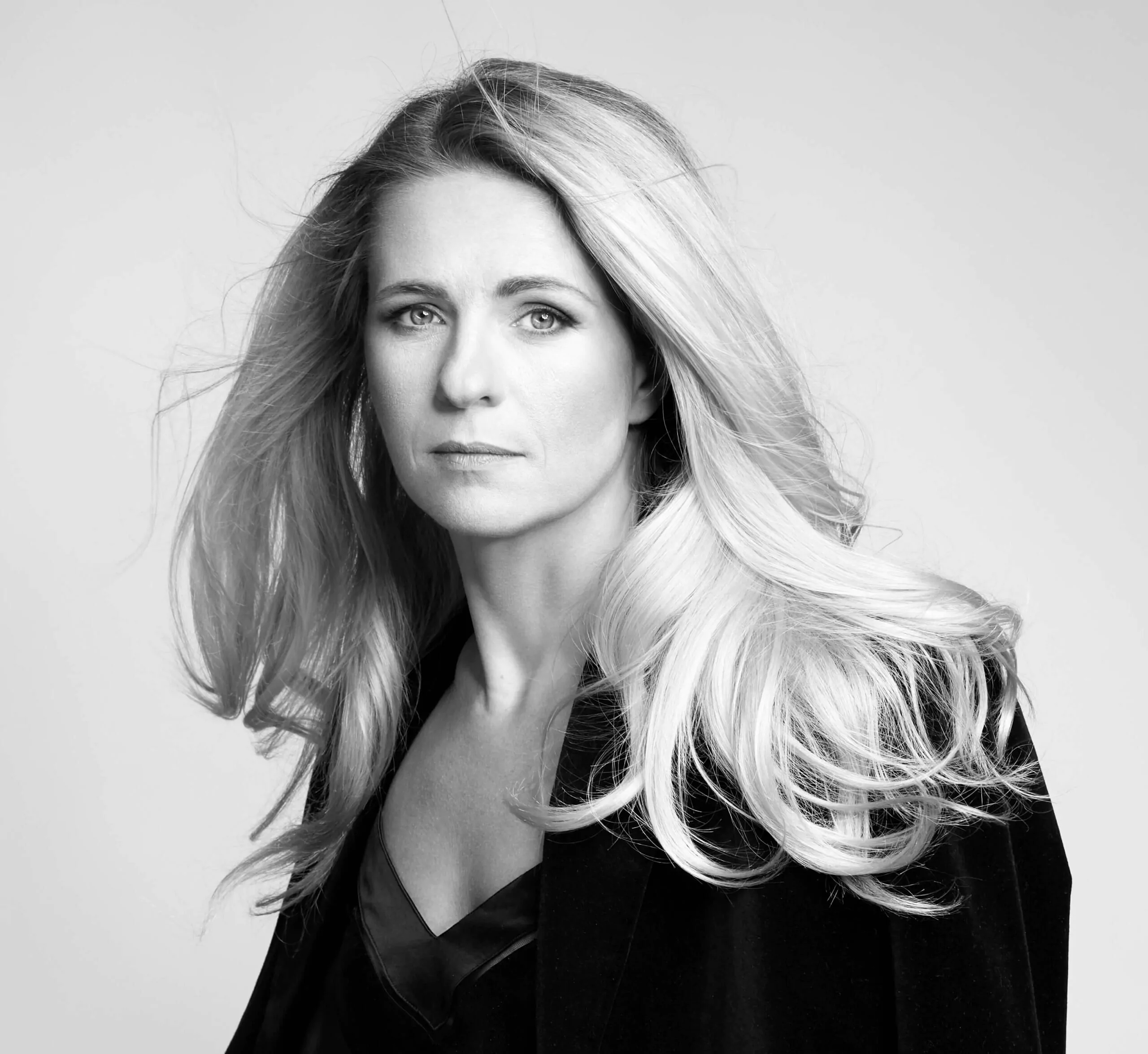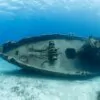Issue 19/2024, Issue topic
Water is a Woman. Karina May Reyes in the fight for Philippine rainforests
Water has been recognized as a life-giving force since the dawn of time – but for Karina May Reyes, an environmental activist in the Philippines, water symbolizes much more. Reyes is an ecosystem watchdog who cares about both people and nature. As co-founder of the Center for Sustainable Development of the Philippines, she not only understands the importance of this resource, but also dedicates her life to protecting the last virgin rainforests of Palawan – a magical place whose future is in question.
Reyes’ story is one of strength and determination, of striving to protect what may be irretrievably lost. But also about the strength of women passed down from generation to generation. Her mission – to protect Palawan, rich in biodiversity – has become a fight against resource exploitation, deforestation and climate change. I first heard about this struggle on CNN’s “Call to Earth” program – in it Reyes talked about the challenges facing the rainforests. For me – an editor who had just wondered which woman could become the first heroine of the publication’ s Water is a Woman series – she became a natural choice.
Philippines is a land of biodiversity
A true pearl of biodiversity, the Philippines is one of the most unique places on Earth. The richness of the archipelago’s flora and fauna is downright staggering – almost half of the approximately 1,100 species of terrestrial vertebrates found in the Philippines are endemic, that is, species found nowhere else in the world. Vascular plants here are equally exceptional – their endemism is estimated at 45 to 60 percent [1]. What is found in Philippine forests and coastal waters is a treasure not only for this country, but for the whole Earth.
This uniqueness extends to the underwater kingdom, which abounds in coral reefs and ichthyofauna. However, this natural paradise has teetered on the brink of disaster. The Philippines is considered a global conservation priority – for both terrestrial and marine ecosystems – because what we destroy here could be lost forever.
Forests that once covered almost the entire surface of the country are now in dramatic retreat. They remain on only 24 percent of the Philippines’ area, painful evidence of destructive human activity. Over the past two decades, more than 1.4 million hectares of forest have been destroyed, a decline of 7.6 percent, with an annual deforestation rate as high as 1.9 percent [2], with intensive agriculture, logging and rapid urbanization the main causes. Resource extraction is contributing to even faster degradation of these valuable ecosystems, especially on the islands of Palawan and Mindanao. Open-pit mines not only destroy forests, but also cause soil erosion and water pollution, with far-reaching consequences for biodiversity and the health of local ecosystems.

Palawan woman in fight for her heritage
Palawan, often referred to as the Philippines’ last ecological bastion, is a place where nature and man have for centuries formed an unbreakable bond. For Reyes, a woman with deep ties to this unique island, fighting for it is much more than an ecological mission. It’s a defense of a heritage that runs in her blood and determines her daily life. On these islands, water is no mere resource – it is a force that shapes every aspect of life, from the lush rainforests to the complex ecosystems of the coral reefs. As I listened to Karina May Reyes’ story, I thought: – Water is a woman, because it is the women of indigenous communities who have protected these lands for generations.
Reyes spoke of a time when rainforests covered nearly 90 percent of the Philippines. Philippines, and her words echo the painful loss. Today, only 3 percent of those forests remain intact – most of them on Palawan. Reyes and other women from indigenous communities understand the importance of their struggle. For them, every palm tree cut down, every river polluted, is not only a damage to nature, but also a blow to the heart of culture and the future.
They are the ones who see that without water and forests, local communities like the Bataks will disappear – and with them their traditions, knowledge and all their ancestral history. The Reyes’ actions are not only about conservation, but also about fighting to ensure that their world – like water – can continue to flow, carrying life, memory and survival.
The fight doesn’t stop
Palawan is no exception. The importance of water and the protection of forests around the world is not a priority for policy makers, as we are unfortunately all painfully aware. Water, while fundamental to our existence, cannot be protected without political support. In the CNN documentary, Reyes points out the complexity of procedures that could protect rainforests and water resources in the Philippines if they were simpler. At the end of the day, if you don’t have politicians and policymakers on your side, you don’t have anyone to sign off on changing the law, Reyes says. In this case, the fight for heritage is also a fight for political recognition.
Although the Center for Sustainable Development of the Philippines has achieved successes, such as the recognition of Cleopatra’s Needle as a conservation area, their mission still faces obstacles. Reyes and her team are trying to protect another 8,000 hectares of virgin forest, but without the right policy decisions, this goal remains unattainable.
At the end of his conversation with CNN, Reyes reminds us that protecting the Philippine islands is of global importance. Maintaining these areas is extremely important, not only for biodiversity, but also for protecting vulnerable communities from climate change.

Women and the future of water
Karina May Reyes is just one of the many heroines of this global struggle. The women who are constantly standing up for water are fighting an uneven battle not only for access to safe drinking water, but also for the preservation of their communities’ heritage. Their stories are proof that this is a struggle for survival – not only in the literal physical sense, but also culturally and socially. Reyes is its symbol and voice, one of many that must resound for us to truly understand the scale of the drama.
The problem of access to drinking water is deeply rooted in global reality, and the data is alarming. According to the WHO, 1 in 3 people in the world do not have access to clean drinking water. This means that more than 2 billion people face a daily challenge that is unimaginable to many of us. In this struggle, it is women who are most often on the front line – not only because they are the ones who traditionally take care of the household, but also because their role in rural communities is crucial. Does it make sense to involve women in water conservation? Of course it does – not only are they the first guardians of water, they are also the first victims of the water crisis.
With that said, their efforts, while heroic, are often underestimated. For years, the fight for water has been the domain of large corporations and governments. Is this the kind of future we want? A future in which the voices of women, who have cared for water for generations, are drowned out by political and economic interests? There are many more stories, conversations and initiatives ahead in the Water is a Woman series. Karina May Reyes’ voice is just the beginning. The portrayal of women who fight for and protect water every day is key to understanding how much our world depends on this resource. Each successive story is a reminder that without the support and involvement of entire communities, the future of water may be far more uncertain than we think.
pic. main: photo: call to earth CNN
[1] – https://academic.oup.com/bioscience/article/58/3/231/230823?login=false
[2] – https://www.globalforestwatch.org/dashboards/country/PHL/

 Polski
Polski







